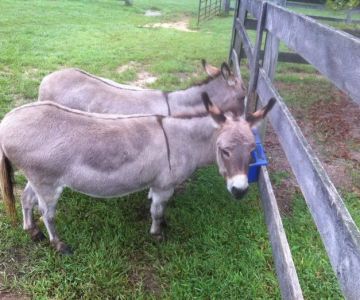Can Veterinary Nurses Diagnose? What You Need to Know
- 1. What Does a Veterinary Nurse Do?
- 2. Can Veterinary Nurses Diagnose Conditions?
- 3. Training and Experience Required for Veterinary Nurses
- 4. The Importance of Teamwork Between Veterinary Nurses and Vets
- 5. How Veterinary Nurses Enhance Animal Healthcare
1. What Does a Veterinary Nurse Do?
As someone who has worked closely with animals for many years, I can confidently say that veterinary nurses play a crucial role in animal care. They assist veterinarians in diagnosing and treating illnesses, performing medical procedures, and ensuring the overall well-being of animals. However, their role is distinct from that of a veterinarian, as they work under the direction of a licensed vet.
Veterinary nurses are responsible for tasks such as monitoring vital signs during surgeries, providing post-operative care, administering medications, and assisting with diagnostic tests. They also play a vital role in educating pet owners about proper animal care, nutrition, and behavior. While they are essential in the healthcare of animals, their scope of practice does not typically include making official diagnoses, which remains the responsibility of veterinarians.
2. Can Veterinary Nurses Diagnose Conditions?
So, can veterinary nurses diagnose conditions in animals? In short, the answer is no – veterinary nurses are not authorized to make medical diagnoses. This responsibility falls solely to veterinarians, who have the necessary education, training, and qualifications to evaluate symptoms and determine the appropriate diagnosis.
That being said, veterinary nurses do play an important supporting role in identifying potential health concerns. They are often the first to notice changes in an animal's behavior, physical appearance, or health, and will report these observations to the veterinarian. This input is invaluable in helping vets make accurate diagnoses and develop treatment plans. In essence, veterinary nurses are skilled in recognizing signs that may indicate a medical issue, but they rely on the veterinarian to make the final diagnosis and prescribe treatment.
3. Training and Experience Required for Veterinary Nurses
Veterinary nurses undergo extensive training to equip them with the skills and knowledge required to assist veterinarians in diagnosing and treating animals. In the United States, veterinary nurses are often referred to as veterinary technicians, and their education typically involves earning a degree in veterinary technology or a related field.
During their training, veterinary nurses learn about animal anatomy, pharmacology, laboratory techniques, medical imaging, and anesthesia management. They are also trained in the ethical and legal aspects of veterinary care, ensuring they provide the best care for animals while adhering to legal guidelines. To become licensed, veterinary nurses must pass the Veterinary Technician National Exam (VTNE), which tests their knowledge in various areas of veterinary care.
4. The Importance of Teamwork Between Veterinary Nurses and Vets
One of the most essential aspects of veterinary care is the strong collaboration between veterinary nurses and veterinarians. While veterinary nurses are not responsible for making diagnoses, they work closely with vets to gather information, conduct tests, and assist with procedures. This teamwork ensures that animals receive the most comprehensive and effective care possible.
For example, if a pet comes in with a suspected infection, the veterinary nurse may help by collecting samples for testing, monitoring the animal's temperature and heart rate, and administering medications. The veterinarian will then use the information gathered by the nurse to confirm the diagnosis and create a treatment plan. This collaborative process enhances the overall efficiency and effectiveness of animal healthcare.
5. How Veterinary Nurses Enhance Animal Healthcare
Although veterinary nurses may not diagnose conditions themselves, their contributions to animal healthcare are immeasurable. They provide direct care, support, and education to both animals and their owners, ensuring that animals receive the best possible care throughout their lives.
Veterinary nurses also help to prevent illnesses by promoting regular check-ups, vaccinations, and proper nutrition for pets. Their ability to detect early signs of illness and their knowledge of preventative care can help extend the lives of animals and prevent more serious conditions from developing.
In my experience, veterinary nurses are truly the unsung heroes of the veterinary field. They work tirelessly to ensure that animals are healthy, happy, and well-cared for, while supporting veterinarians in their medical practices.











